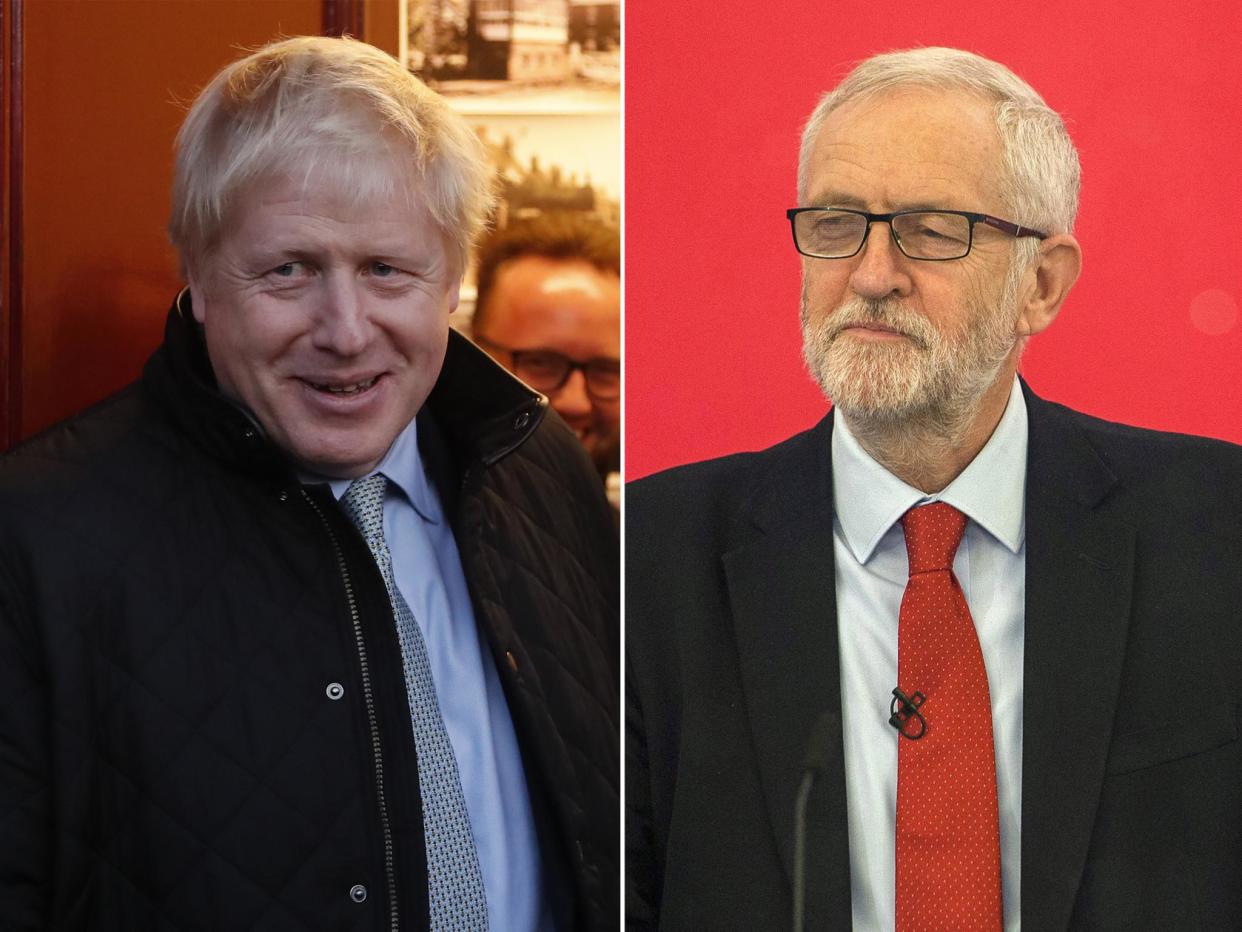With just days until the election, voters have been left in the dark on public spending - parties should be ashamed

With days to go until the most important election for our economy in living memory, voters will be going to the polling stations with blindfolds on.
Fiscal policy — the decisions on taxation and public spending that determine how much the government borrows – is in disarray. The government had already shifted the date of the budget from spring to autumn and now Boris Johnson has promised a “Brexit budget” in February if the Conservatives stay in power. Government departments are working with a one-year spending plan, rather than the three-year version that was promised. Because they can’t make long-term plans, they will struggle to deliver the improvements in services such as health, education and policing that voters are demanding
To add insult to injury, the Office for Budget Responsibility (OBR), which is responsible for modelling the government’s fiscal plans, has had its forecast shelved at the last minute. Whatever the rights and wrongs of the decision by Cabinet Secretary Mark Sedwill to block its publication, I believe the electorate should have been allowed to know whether the government would have hit its self-imposed targets. Instead the government drew up yet another new set of rules committing the government to ensure its day-to-day spending was in balance by 2022, and to cap infrastructure spending at 3 per cent of annual GDP.
And without those independent forecasts by the OBR, who knows whether they are achievable? Voters have been forced to try and assess a rash of spending promises by the two main political parties, who have accused each other of fiscal incompetence. The row may have made great headlines, but it has left voters woefully misinformed of the real economic choices and dilemma to which policymakers should be facing up.
It was not always like this. In 1997, it was decided that interest rates would be set by independent officials rather than politicians, so that savers and borrowers no longer found interest rates set according to the electoral cycle. The Bank of England now publicly explains its decisions and its forecasts, which means that homeowners and credit card borrowers have a better chance of knowing when, why and by how much their mortgage rate will change in the future. It has also focussed the attention of the Bank on meeting its target, which helped us deal with the shock and aftermath of the financial crisis.
Contrast this with the goings on in Westminster. While it got off to a good start in 2010 when the coalition government laid out rules setting clear and transparent targets guided by independent forecasts by the OBR. Since then we have had many different sets of fiscal rules. (Rules-based policy since 2010 has been a positive development, but the number of changes to those rules has not.)
The reason the government changing the targets for the annual deficit and the total amount of debt the country holds is, as Harold Macmillan famously said, “events, dear boy, events”. The idea of having a debt total etched in stone is self-defeating. It is hardly a surprise, therefore, that targets have been missed.
Ministers need to accept publicly that an appropriate level of public debt is one that matches society’s changing needs. Rather than change the target every few years simply to avoid being accused dubbed as useless for failing to meet them, they should acknowledge the targets need to be adapted as fresh challenges arise. This should be overseen by an independent body such as the OBR (which must have a statutory right to publish its forecasts). The demands on government spending in a globalised world are too complex for rigid rules.
Fortunately the organisation I run, the National Institute of Economic and Social research, published its own analysis this month, which explained that the government would not reach its fiscal mandate. The research found that an unfunded spending spree risked unhinging fiscal policy as well as missing the chance to set right the shortfalls in necessary public investment in infrastructure and people. The muting of the OBR also means that other parties do not feel the need to openly discuss their spending plans. Nor are they required to explain how they are going to fund those plans — also known as taxes in grown-up circles.
Where does this all end? It ends with increased risk of a further official downgrade of our sovereign bonds by the ratings agencies. Just last month, Moody’s took the first step by changing the outlook on its rating of the UK’s debt from “stable” to “negative”, implying a rating cut could be imminent. This would be bad news for the government as it means that it has to pay more to get the financial institutions to lend to it.
The longer the fiscal disarray continues the more likely the UK will lose its reputation as a competent financial manager.
Jagjit S Chadha is the Director of the National Institute of Economic and Social Research
Read more
Tory manifesto tax pledges will inevitably lead to more spending cuts
Johnson is trying to have his cake and eat it over public spending
The devil is in the detail on McDonnell’s and Javid’s spending pledges

 Yahoo News
Yahoo News 
